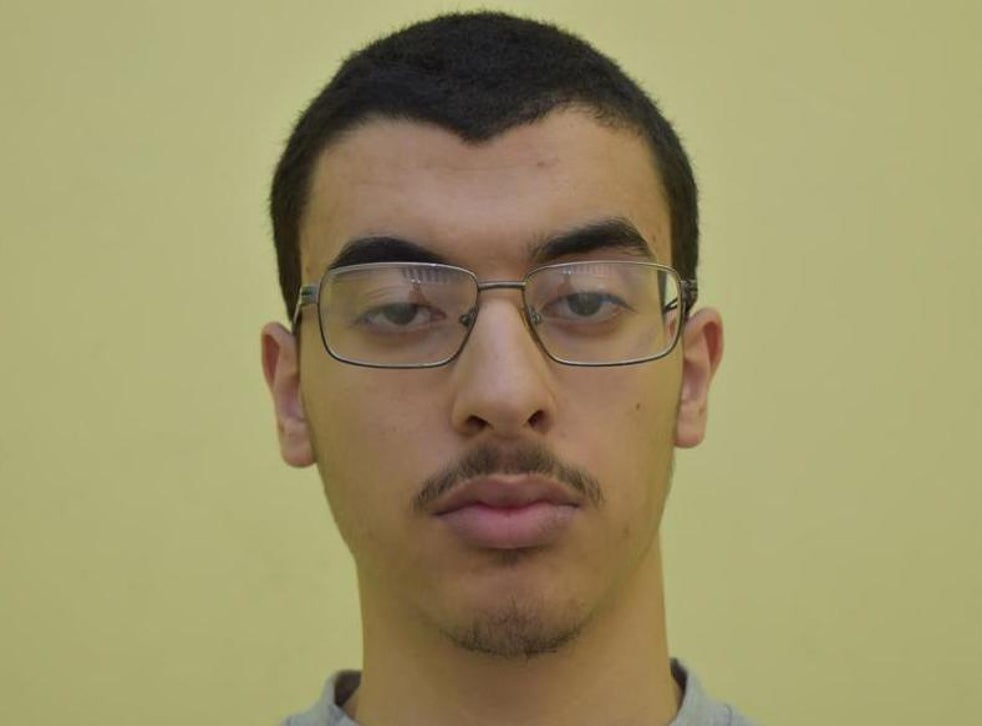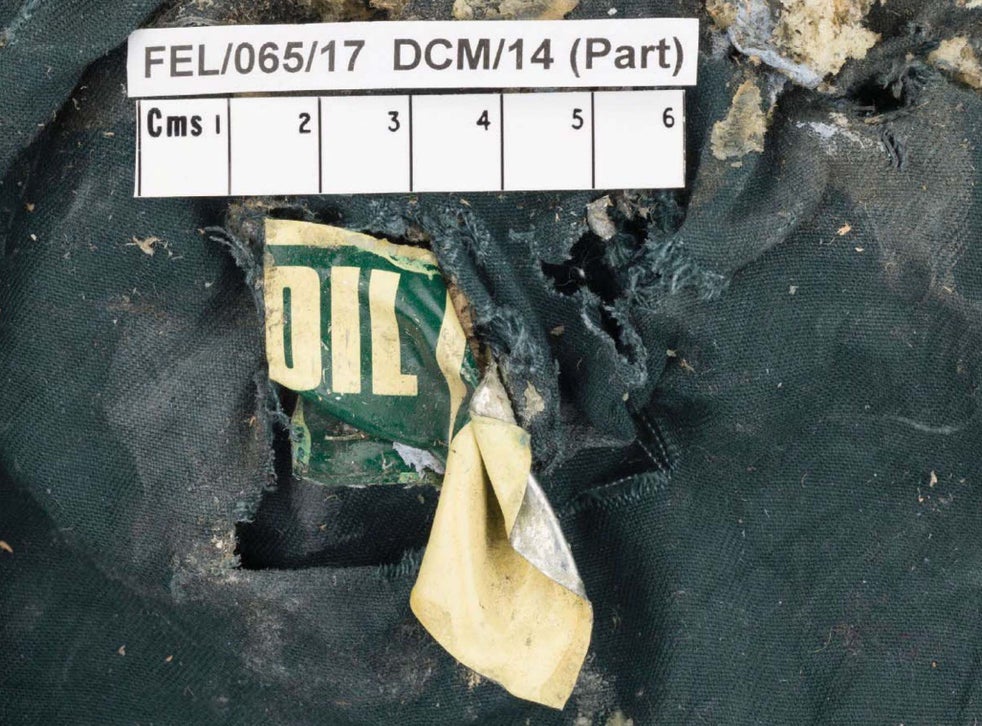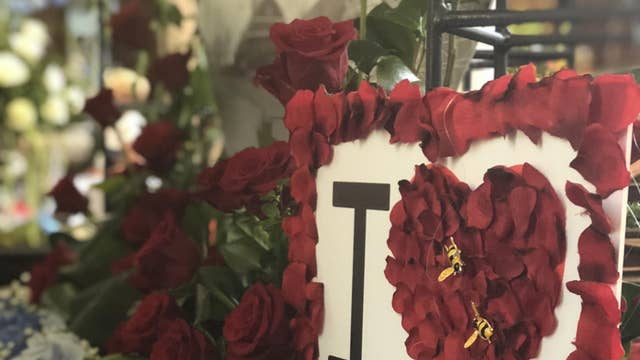Hashem Abedi: Brother of Manchester Arena bomber jailed for life with 55-year minimum term over murder of 22 victims
Hashem Abedi was convicted of murdering the 22 victims after prosecutors said he was “just as responsible” as his suicide bomber brother.
Mr Justice Jeremy Baker gave Abedi a minimum term of 55 years because the law did not allow him to pass a rare whole-life order, due to his age at the time of the attack.
He will not be released unless the Parole Board decides it is safe to do so, meaning he may spend the rest of his life in prison.
The judge said the brothers chose to target an Ariana Grande concert together, and “it was their intention to specifically target” young fans, including children.
“The stark reality is that these were atrocious crimes: large in their scale, deadly in their intent and appalling in their consequences,” Justice Baker added.
“Those consequences have been graphically described in the many victim impact statements which I have had to consider concerning the diverse, talented and extraordinary individuals whose lives have either been extinguished or forever blighted by the physical and psychological effects of the explosion.”
He said that the “despair and desolation” of bereaved families was palpable during the hearing, and that injured victims had been left feeling “guilt and shame” for surviving.
“The only individual who should have any such feelings is the defendant,” he added.

Boris Johnson said the imprisonment of Abedi was “an opportunity to reflect on the importance of tolerance, community and kindness”.
"The Manchester Arena attack was a horrifying and cowardly act of violence which targeted children and families," the prime minister added.
“Those who were taken from us will never be forgotten, nor will the spirit of the people of Manchester who came together to send a clear message to the entire world that terrorists will never prevail."
The Crown Prosecution Service (CPS) said it had been the “largest murder case in English legal history”.
In total, 264 people were injured and 710 survivors have reported suffering from psychological trauma.
Ian Hopkins, the chief constable of Greater Manchester Police, said: “Today marks the end of a three year quest for justice, following one of the worst terrorist attacks this country has seen, and one of the darkest days in our city’s history.
“Of course, for the families and friends of those twenty two souls whose lives were brutally cut short that night in May 2017, the pain will never fully diminish.
“I know that no sentence will ever make amends for their loss, nor the suffering of the more than 1,000 people injured – many seriously or left with deep psychological wounds – who continue to live with the effect of this cowardly attack.”
Mr Hopkins said the division and hatred the Abedi brothers sought to spread was “met with strength and unity”.
The head of UK counterterror policing, assistant commissioner Neil Basu, said: “Today is not about celebrating retribution, but instead honouring those we have lost, commemorating the courage and resilience of the survivors, and recognising the dignity of the family and friends who have used their tragedy as inspiration to try and make the world a safer place."

He denied all charges and initially told police he wanted to cooperate with them in order to prove his innocence, but was absent for much of his trial and sacked his legal team.
Investigators believe he may have masterminded the attack, which was carried out by his older brother Salman, but Abedi could not be questioned in court because he refused to give evidence.
Isis claimed the responsibility for the bombing, which was the second and deadliest terror attack to strike Britain in 2017.
Justice Baker said that although Abedi had not been as "overt" in his support for the group as his brother, he shared the same jihadist views.
A public inquiry is scheduled to start next month, which will examine the brothers’ activities as well as potential failings by the security services to prevent the attack.
Prosecutor Duncan Penny QC told Abedi’s trial the Manchester bombing was the “culmination of months of planning, experimentation and preparation by the two” brothers.
“The law is that Hashem Abedi is just as responsible for this atrocity and for the offences identified in the indictment, just as surely as if he had selected the target and detonated the bomb himself,“ he added.
Witnesses said both brothers had developed a jihadist mindset, with one telling the court that Abedi “believed in terrorism”.
Manchester Bombing Attack: one year on
Show all 10
They went to school with Isis recruiter Abdulraouf Abdallah, who was jailed for helping Isis fighters travel to Syria in 2016, and later visited him in prison.
The trial heard details of how Abedi helped buy precursor chemicals to make explosives and “obtained and experimented with” bomb components.
Abedi had a qualification in electrical installation and started a BTEC course in engineering before dropping out.
Some of the purchases were made using benefits claimed from the British government by his mother, who moved back to Libya with her husband and younger children in 2016.
The brothers used multiple properties around Manchester to store bomb components, which were eventually kept in a car.
Salman and Hashem, who were born in Manchester, were living in the family home but travelled to Libya together in April 2017.
Salman returned to the UK alone four days before the attack to make the final preparations.
Mr Penny said Abedi was “at times chauffeur, at times quartermaster, at times electrical technician” in the plot, but then attempted to evade any responsibility for his role.
Police believe Abedi took the final call his brother made before blowing himself up, which was made to the family’s Libyan home shortly before the bombing
His fingerprints were found in a car and properties that were used to store explosive chemicals, as well as on shrapnel from the blast.
Abedi was detained in Libya less than 48 hours after his brother detonated the suicide bomb, and extradited to the UK two years later.
tinyurlis.gdclck.ruulvis.netshrtco.de
